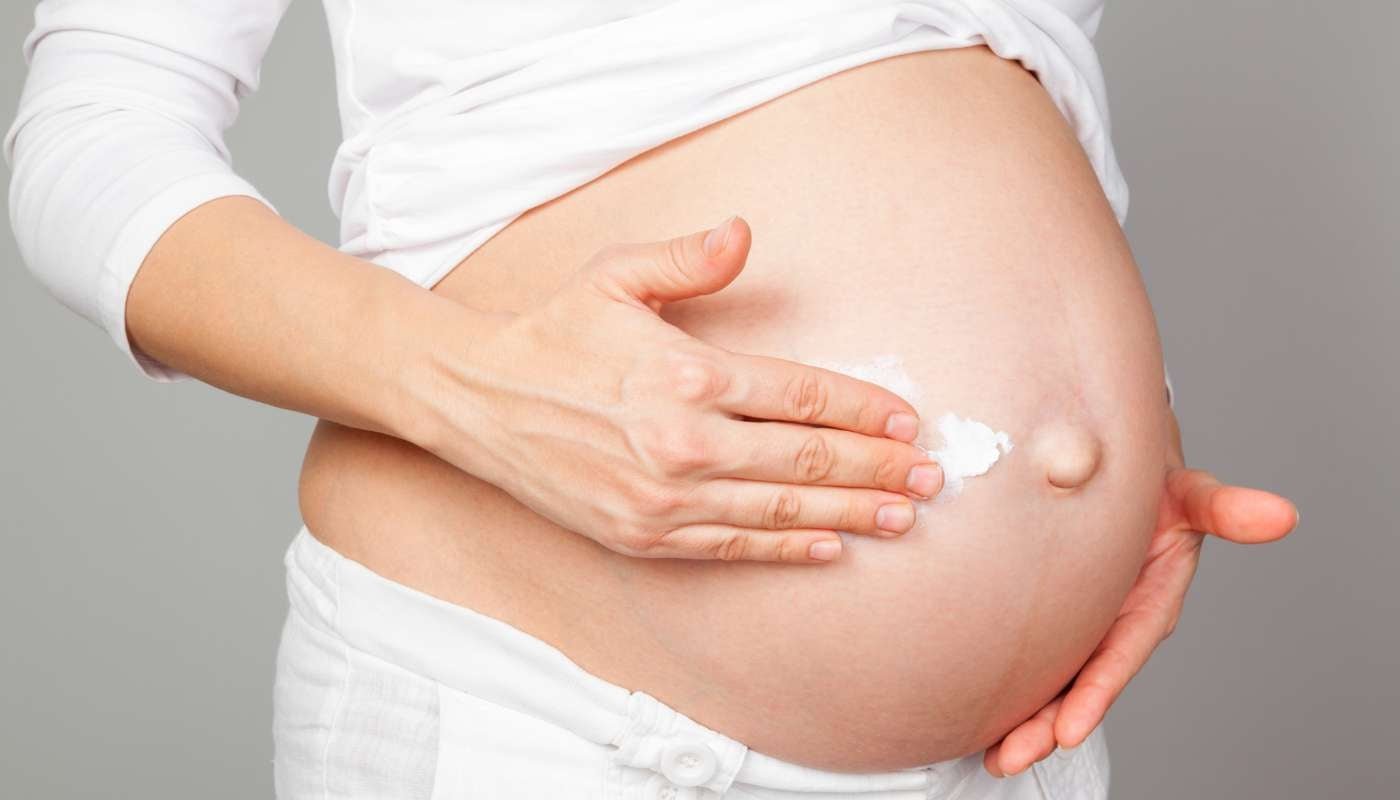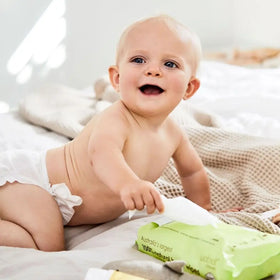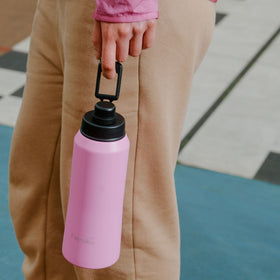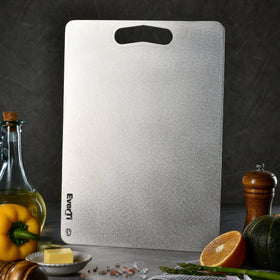
Pregnancy Skincare Issues and How to Fix them the Non Toxic Way
Ah, pregnancy. Your skin glows, your hair is thick and glossy and you look your very best. No? Well, you're not alone.
The reality is that lots of mums-to-be don't feel very glowy. You're tired, you've got more spots than you ever had as a teenager, the stretch marks are starting to show and your hair is lank and greasy. You've got pregnancy skincare issues.
You want to do something about it, but you're worried about the products that you're using in case they're toxic.
Normally, we don't think twice about swiping on blush or getting a mani-pedi. But during pregnancy, we are driven by concerns about our developing babies. We worry about whether the products we're using might be harmful to our unborn children.
This can all be very confusing and anxiety inducing. But don't worry!
We've got a quick guide covering pregnancy skincare issues, and how to solve them using safe, non toxic products.

Facial skincare
Acne and spots
During pregnancy, the surge of hormones in your body can lead to your oil glands going into overdrive. The excess oils can block pores, resulting in acne. While spots are a pain anytime they show up, they are even more so during pregnancy, when you may be too tired to follow a rigorous skincare routine. For pregnancy acne, you want an easy, no fuss skincare regimen that targets spots and soothes your skin.
Although you shouldn't take salicylic acid orally during pregnancy, it's fine to use it on your skin. Try a natural spot cream like Acure's Acne Spot Treatment with 2% salicylic acid. If you want to avoid salicylic acid altogether, try Necessity's zit stick.
Cleanse properly
Too tired at night to cleanse properly? Get into the habit of removing your makeup as soon as you get home. Instead of falling into bed with a full face of makeup, keep a pack of alcohol free facial wipes on your bedside table for a quick cleanup before you conk out.
Dark patches
If you’re noticing dark or tan patches of skin on your face, it could be melasma. This is a common skin issue known as the 'mask of pregnancy.' To even out your skin tone, try an organic concealer with no nasty ingredients like parabens and titanium dioxide. There’s a wide variety of natural makeup out there that will help conceal spots, dark circles, and red patches but are also safe for you and your baby.
Sunlight can make the patches look darker, so it’s super important that you wear sun protection every time you head out.
Dry skin
Pregnancy can also leave you with drier skin than usual. A good facial moisturiser with hydrating jojoba oil or sweet almond oil will solve this problem.

Body skincare
While there’s still no proven way to prevent stretch marks, you can try to reduce their impact by keeping your skin well moisturised. Natural skincare products that contain ingredients like jojoba oil will keep your skin elastic and firm. Post pregnancy skincare products with calendula oil or aloe vera can help reduce the appearance of stretch marks.
Cocoa butter can soothe itchy bellies and give you relief from that super stretched sensation on your bump.
Nails
Use nontoxic nail polish if you want to have your nails done during pregnancy. Regular polishes may contain harmful chemicals like formaldehyde, toluene, and DBP — the toxic trio. Formaldehyde is a carcinogen and may cause breathing problems, toluene can cause reproductive issues, and DBP is a developmental toxin. When you go to the nail salon, make sure the place is well ventilated. You may be using safer nail polish but you could still be inhaling a lot of nasty chemicals.
Speaking of nasties in the air, spray tanners may contain dihydroxyacetone (DHA), a chemical than can be harmful when inhaled. Throw your spray tanner away and use an organic self tanning cream instead.
There’s been some confusion about whether or not pregnant women should wear sunscreen. But because your skin is so much more sensitive during pregnancy, you’ll need more sun protection than ever before. Before you leave the house, make sure you’re wearing sunscreen with an SPF of at least 30. Choose a safe sunscreen with physical blockers such as zinc dioxide rather than chemical sunscreen. Read labels carefully and look out for harmful ingredients like retinyl palmitate, which can increase the risk of birth defects.
To find the best natural sunscreen, check out our very popular Safer Natural Sunscreens Cheat Sheet.
Lastly, regular deodorant is chockfull of things like aluminium, parabens, phthalates, propylene glycol, and synthetic fragrances. To be safe, swap your usual antiperspirant with a natural deodorant. We've got a whole article about pregnancy, breastfeeding and the safe use of deodorants if you're looking for more info.
Haircare
Most mums-to-be find that their hair is at its thickest and bounciest during pregnancy, especially in the last trimester. But if you find that your locks need a little help volume-wise, there are some natural haircare products that will give your strands a boost.
Choose gentle shampoos and conditioners made with plant-derived ingredients and no hidden nasties like sulfates and synthetic colours.
For days when you simply can't be bothered to wash your hair, use a sulfate free dry shampoo to control oil and keep your locks smelling fresh.
The link between hair treatment products and birth defects has not been established. But if you’re considering colouring, bleaching, perming, or straightening your hair, there are steps you can take to reduce the risk of chemicals harming your baby. NHS suggests wearing gloves when handling dye and leaving the product on no longer than directed. You can also swap regular hair dye with semi-permanent vegetable dye like henna.
In addition, you might consider waiting until after the first trimester to treat your hair. Anytime you go for a hair treatment, make sure that it is done in a well ventilated area.
Because your skin and your hair reflect what’s going on in your body, you can help improve their appearance by taking care of yourself from the inside. Drink lots of water and be mindful about the food you eat. Stress can worsen skin and hair problems. Try calming exercises like yoga and breathing techniques.
We hope these pregnancy skincare tips help you make better decisions about the products you use during your pregnancy. Let us know in the comments if there's anything else you'd like to know about natural skincare during pregnancy.










